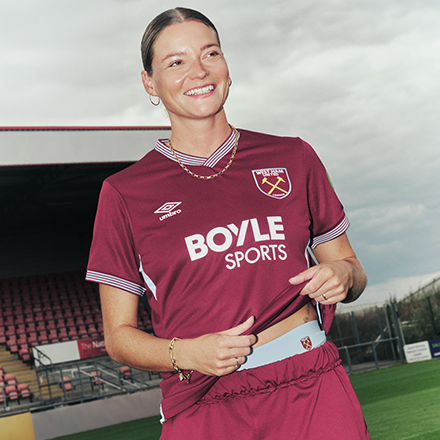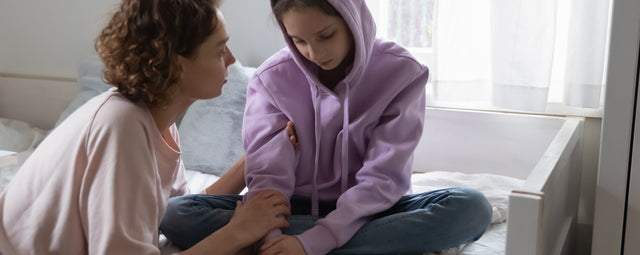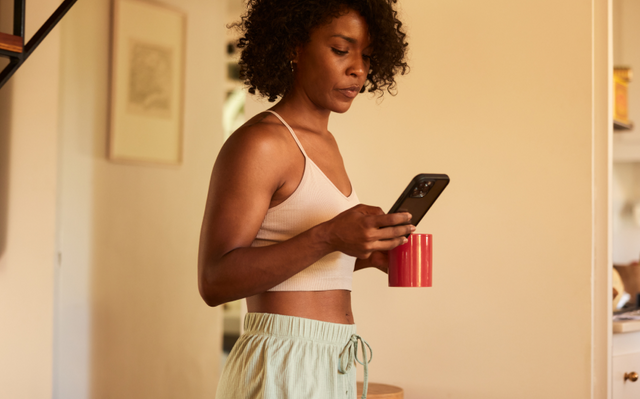Bloody brilliant: How our Game Changer Grant is fighting period poverty and improving equality
Imagine a world where you pay more for goods based on your gender and can't access or afford menstrual products. That's the sobering reality for over 500 million people worldwide impacted by period poverty and the pink tax.
Chances are you’ve heard these terms before, but what do they actually mean? Let's examine the reality of period inequality and gender pricing bias and explore meaningful ways to address it – because everybody deserves dignity.
So what exactly is period poverty?
First up, period poverty is a complex global issue. It affects countless people who struggle to manage menstruation for one (or all) of the following reasons. They may:
- Not have finances to afford menstrual products
- Lack access to safe and clean facilities
- Face cultural or societal taboos
- Encounter menstrual discrimination
- Be uneducated about period management
- Feel shame or fear seeking support
Period poverty isn’t a minor issue – it’s a widespread public health crisis.
Globally, a whopping 1.7 billion people don't have access to basic sanitation, and 40% lack handwashing facilities at home. Managing menstruation with dignity can be extremely challenging without clean water and amenities, leaving people vulnerable to reproductive and urinary tract infections.
To add to the problem, girls with disabilities disproportionately lack access to the facilities and resources needed to safeguard their menstrual hygiene.
These barriers, paired with the longstanding stigma surrounding periods, can significantly impact the health and emotional wellbeing of people who menstruate. And we’re not down with that.
The numbers: A look at period poverty statistics around the world
The unfortunate truth is that period poverty is more common than you think. Across the world people struggle with the access to products and facilities. Let’s look at the facts:
- 40% of girls in the UK have used toilet roll because they've struggled to afford sanitary products.
- A 2021 survey revealed that nearly a quarter of teenage students in the U.S. experienced period poverty.
- More than 1 in 5 (22%) of Australians have had to improvise on period products due to cost (The Big Bloody Survey).
- 49% of Australians have worn a pad or tampon for more than four hours because they didn’t have enough products to get by. (The Big Bloody Survey)
- The World Bank estimates at least 500 million women and girls globally lack access to the facilities they need to manage their periods.
Does period poverty affect education? It sure can. The problem flows right through our classrooms and workplaces, too.
- 46% of Australians said they’ve skipped school for at least an entire day because of their period.
- 74% Australians said they found it difficult to pay attention in school, and 46% said they have not been able to perform their best in exams or assignments due to their period.
- More than 137,700 girls in the UK missed school last year because they couldn’t afford sanitary products.
Tackling inequality: The Modibodi Game Changer Grant
Sure, we make period underwear, but we’re also working to support organisations that improve period equality, too.
Enter The Modibodi Game Changer Grant.
Our first-ever global grant provides funding to extraordinary people, projects and organisations making their mark on menstrual equality, menopause awareness, climate action and other significant global issues.
We're committed to offering both financial and skills-based support to help our grant recipients fight the good fight and make meaningful change for period equality.
And the inaugural winner is … Irise International
Our 2023 grant winner is UK-based Irise International and their Period Equality Network, which champions grassroots action to improve menstrual health and access to period products.
CEO and Founder Emily Wilson is passionate about breaking the cycles of disadvantage for people who menstruate and empowering youth to lead social change and influence national policy.
'We’re really excited to be working with Modibodi because of our shared values. We see Modibodi as a company working hard to change the status quo, challenge harmful social norms and deliver solutions that are sustainable and inclusive.
“We know that we are more powerful when we work together, and we’re delighted to be collaborating on building a world where everyone can realise their potential – unlimited by their period," says Emily.
Let’s end period poverty together.
Period poverty is a serious issue affecting millions of people across the globe, and something has to change. At Modibodi, we’re proud to have donated over 150,000 products since 2020 through our Give A Pair program to help create period equality.
Working together, we can break the silence around period stigma and advocate for every person who menstruate to have access to the products and dignity they deserve.






